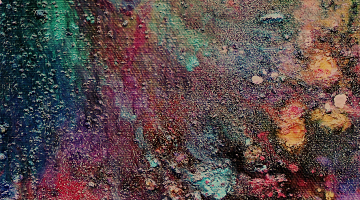
Blog
Writing
About
God to
Know
God
Reflections from Christian Wiman’s poetry & faith workshop
By Whitney Bauck
When I introduce Christian Wiman’s work, I often begin with the assertion that he’s 75 percent of the reason that I still call myself a Christian.
Wiman’s work entered my life at a time when I desperately needed it, via a friend’s recommendation on a sunny morning walk in early spring. It would be difficult to overstate the impact that My Bright Abyss, the first Wiman title I read, had on me. It made faith not only seem possible, but also sane and holy and even necessary, for the first time in ages.
It’s unsurprising, then, that I jumped at the chance to learn from Wiman in a poetry workshop hosted by the Center for Faith and Work in January. While I was unsure what I, a fashion writer who has only amateurishly dabbled in poetry, could expect to take away from the workshop, I was confident I wouldn’t leave empty-handed or empty-hearted. I was not disappointed.
Over the course of my few hours spent in writing exercises and group discussions with poets and non-poets alike, one of the themes that rose to the top was Wiman’s emphasis on the specificity of language. In prose, you may be able to get away with blabbing on as long as you like, especially in a digital age that no longer needs to observe word limits for print’s space-saving reasons. But poetry is by nature a sparser medium, and even epic poems like Dante’s Divine Comedy tend to have more carefully-chosen syntax. With shorter poems like Wiman’s — which may have no more than one or two words per line — the need to chose each word with extreme intentionality becomes paramount.
While this seems at first to be a merely technical observation, the truth is that this value for carefully-chosen verbiage has significant theological implications. In My Bright Abyss, Wiman quotes George Lindbeck saying “you can no more be religious in general than you can speak language in general.” If the idea that we can’t conceive of something that we don’t have adequate language for is true, then finding better words to describe God isn’t merely a mental exercise for the over-educated. It’s a matter of getting closer to describing the reality of who and what God really is, and thus being able to experience that reality more fully.
This is exactly the experience I’ve had with Wiman’s writing. His unwillingness to fall back on the trusty clichés, so familiar to my church-raised ears, has made it possible for me to experience God afresh by clearing new language pathways through which God might be accessed.
Another theme Wiman stressed in our time together was that of “contemplative attention.” He had workshop attendees write as much as they could in two minutes about a moment they remembered from earlier in the day, with a particular focus on the sensory. It’s a strategy Wiman has used as a jumping-off point in writing his own poetry. By being fully present in the moment right in front of him — whether watching sparks fly off the tracks of the L train or noticing the thump of a bee against a windowpane — the poet invites his reader to experience the deeply mundane in a way that becomes transcendent.
This too has theological implications. “Of the present moment, and of it only, humans have an experience analogous to the experience which [God] has of reality as a whole; in it alone freedom and actuality are offered them,” writes C.S. Lewis. It is harder to hear what God is saying now if we are too wrapped up in memories of the past or dreams of the future. Paying scrupulous attention to the world around us in any given moment, then, becomes a means of opening ourselves to what God might be up to and giving ourselves a chance to respond to it. This is one thing Wiman’s poetry invites us into.
I cannot pretend that reading from or workshopping with Wiman has blasted the ceiling so thoroughly off my day-to-day that I now experience God’s light pouring in with the blinding constancy I dream of. But Wiman’s words, and the tools he’s offered in searching for specific language and practicing contemplative attention, have helped create cracks that let a bit more sun in. For someone accustomed to living in shadow, that’s worth a lot.
